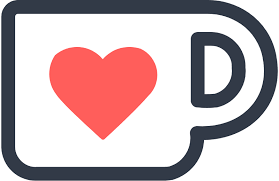Gathering Lots of Knowledge
is there an end goal?
In today’s edition of Burke’s Bits:
The End Goal of Gathering Knowledge
A Marketing Tip
From the Research Files
Pun of the Day
=============================
The End Goal of Gathering Knowledge
In one of the many Facebook Groups I belong to, a business book club, a question was asked:
What’s the end goal of gathering lots of knowledge?
The comments were interestingly short and uninformative…
To help yourself and others
My answer is: to understand (know).
The goal of knowing is to lead to action (doing) then becoming.
Know, do, be.
Isn’t one really. Just to be more capable than yesterday.
The end goal of gathering lots of knowledge can vary depending on individual perspectives and goals.
1. Personal growth and self-improvement:
2. Professional development:
3. Problem-solving and innovation:
4. Contribution to society:
5. Intellectual curiosity and personal fulfillment:
Pass it on to the next generation
My end goal is to change my believe
I'd say to share it
unlimited power⚡️
My response was this -
There is no "end goal".
Every bit of new knowledge I gather is used as I make decisions, engage with people, must solve a problem.
While some things I “know” may seem unrelated, disparate pieces of knowledge become connected as they form solutions I otherwise would not have considered.
I’m a curious person. I have questions. I want answers :)
For example, can one use Chaos Theory to form a personal belief in someone else?
I never would have asked that question had I not read a novel (Death Qualified by Kate Wilhelm) that included a trio of power hungry people who wanted to create a society of loyal citizens. The trio included 1 mathematician, 1 psychologist, and 1 computer programmer. They used Chaos Theory to establish core beliefs in pre-pubescent children.
Note: Chaos Theory deals with nonlinear things that are effectively impossible to predict or control, like turbulence, weather, the stock market, our brain states, etc. Think Fractals and the Mandelbrot set and more.
The conclusion I came to is Yes, indeed, Chaos Theory can be used to establish a personal belief in someone else. I also came to the conclusion that it can apply to my own belief system. It doesn’t require that I be a mathematician or scientist or fully understand Chaos Theory. It simply requires that I see the world and my place in it as a non-linear relationship. There is no direct path from A to D.
That simple question and, I admit, combined with “confirmation bias”, led me to a conclusion that keeps my mind open to different perspectives and innovations. Essentially, it helps me to not be afraid of the possibilities but instead, to examine them.
=============================
A Marketing Tip
Use Generative AI (ChatGPT, Claude.ai) or your own CustomGPT to create content, analyze documents and data, create code, understand your audience, and create prompts for images, and much more.
Marketing works best when you can engage with your audience - internal and external. One way to engage is with chatbots.
CustomGPT is an advanced AI solution, built with ChatGPT APIs, that can be trained on businesses' own custom data in a secure environment (not part of ChatGPT/OpenAI’s learning environmetn). CustomGPT can be used to:
Grow customer engagement & Improve Customer Service on business website/app
Augment and improve search on business website/app to show accurate results from business knowledge base / content
Enable employees to get quick accurate answers for information about the business
The tip? Don’t trust the first draft. Is it data analysis? Test it as you would test your own assumptions. Is it content you’re familiar with? Consider it the first draft you wrote and now can massage with details.
=============================
From the Research Files
aka random bits of info you may or may not be able to use in your life
Mark Twain envisioned the internet in 1898.
In his short story called “From The ‘London Times’ in 1904,” Twain predicted the internet. In 1898. Read it here.
Set five years into the future, the story begins as a crime mystery. Clayton is accused of murdering Szczepanik, the inventor of a new and promising device called the Telelectroscope…described like this:
As soon as the Paris contract released the telelectroscope, it was delivered to public use, and was soon connected with the telephonic systems of the whole world. The improved ‘limitless-distance’ telephone was presently introduced and the daily doings of the globe made visible to everybody, and audibly discussable too, by witnesses separated by any number of leagues.
Danged if that doesn’t sound like social media!
So then Clayton, locked in his prison cell, uses the Telelectroscope:
day by day, and night by night, he called up one corner of the globe after another, and looked upon its life, and studied its strange sights, and spoke with its people, and realized that by grace of this marvelous instrument he was almost as free as the birds of the air, although a prisoner under locks and bars.
Danged if that doesn’t sound like you and me surfing the Internet, heh?
=============================
Pun of the Day
The Middle Ages were called the Dark Ages because there were too many knights.
🤣😂🤣😂🤣😂
If you are at all informed /entertained /amused /educated by today’s edition of Burke’s Bits, here's where you can show your appreciation.
Just click the button
With Gratitude,
Charlene Burke
Let's Connect
“Your only limitation is the one which you set up in your own mind.” Napoleon Hill, Outwitting the Devil
PS Do you know about my paid newsletter…Email Copywriting Secrets? It’s published every Sunday morning. Each edition is a solid copywriting tip meant to help you strengthen your email copy for better conversions. Want more sales from your emails? Click here to Email Copywriting Secrets now.


